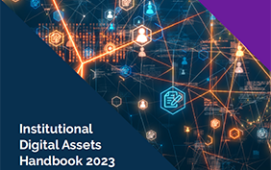
SS&C Technologies has unveiled a new ESG reporting platform to help asset managers meet rising investor demand for transparency into their portfolios’ sustainability risks.
The product was developed from the alternative asset administration giant’s NAV Transparency reporting solution. While data will initially be provided by ESG intel vendor Sustainalytics, SS&C says its new service can process other vendor sources.“We recognised a long while ago that investors were asking managers a lot of questions about ESG and that caused us to pause and ask how we can help,” SS&C Managing Director Richard Clark told A-Team’s ESG Insight . “Managers now want to create ESG-friendly portfolios and there’s an opportunity to target companies with a positive ESG profile that can give enhanced returns versus the market.”
Screening for SFDR
Windsor, Connecticut-based SS&C said the platform will also screen portfolios for Sustainable Finance Disclosure Regulation (SFDR) compliance.
The product has been built on three pillars, said Clark: to provide clients with the necessary tools to comply with growing regulatory demands for ESG reporting; to enable managers to confirm the sustainability claims of companies in their portfolios; and, to apply the company’s own analytical tools to specific ESG data points.“Their needs are different than a generic portfolio’s – they’re telling their investors that they are doing something from an ESG perspective so now they have to report back what they’re doing and how they benchmark themselves on that,” Clark said.
Additionally, standard funds are receiving more and more enquiries about the impact of their investments, he added.
“So those managers are also looking at what sort of reporting they can provide that gets the investor comfortable with their portfolio,” Clark said.
Transparency of data sources
While data quality remains an issue for companies like SS&C, Clark said that investors tend to accept the lack of standardisation in the same way they already accept that different market makers offer a variety of prices on other assets.
“As long as they are transparent about their data sourcing, I think the market and their investors will accept that,” he said.
Nevertheless, Clark foresees rapid quality improvements as more vendors enter the market and increasing numbers of asset managers buy in.“What I think will evolve in the vendor market is the process of challenging data and the vendors either researching or defending it,” he said. “One of the challenges right now is that you may get different results on the same position based on the data vendors you choose. Over time that data will get closer and closer together as people start interrogating it and forcing the vendors to stand up for their position or acknowledge that the data is incorrect.”
Subscribe to our newsletter




